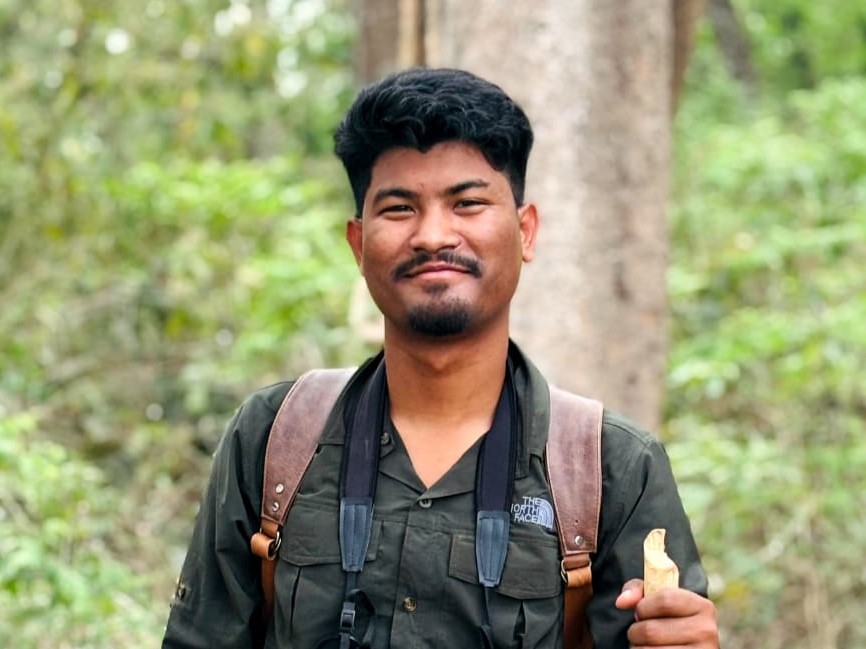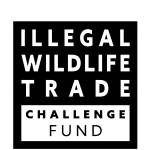Prospects for young conservation champs

Dinesh Kumar Mahato, a Youth Champion and Nature Guide. Credit - Manish Chaudhary.
Supporting employment prospects for young conservation champions
In Nepal, young people known as Youth Champions raise awareness of the importance of wildlife and the dangers of engaging in poaching and the illegal wildlife trade (IWT). They do so as members of Community-Based Anti-Poaching Units (CBAPUs), under the Buffer Zone User Committee structures of national park management.
Supported by WWF Nepal and others over many years, these efforts remain vital. However, young people in the poaching-prone buffer zone areas of Chitwan and Parsa often lack adequate education, income, and employment prospects, leaving them vulnerable to exploitation as poachers or being forced to migrate. Many young volunteers we worked with often expressed that, despite their conservation work, they gain no financial benefit, making the sustainability of CBAPUs uncertain as valuable advocates are lost. This project, ‘Breaking the illegal wildlife trade chain in Bagmati Province, Nepal’ enabled us to pilot a different approach to supporting these young conservation volunteers by helping them enhance their employability.
A survey and consultations with tourism and hospitality stakeholders identified that there was high demand for vocational skills, linking training to jobs that are ultimately dependent on local wildlife and nature. By equipping 100 young people with such skills, the project aimed to create sustainable employment and income opportunities tied to conservation, while ensuring their continued role as champions for wildlife. With support from Buffer Zone User Committees and local businesses who are committed to hiring locally and valuing youth engagement, this approach offers a pathway to stronger CBAPUs and a reduced threat of poaching and IWT.
Here’s the story of Dinesh Kumar Mahato, a Youth Champion and Nature Guide training recipient who engaged in this project:
“Growing up in Kawasoti, just two kilometres from the jungle, I often witnessed fear shape how people in my community responded to wildlife. When animals entered the village, they were seen as threats, and sometimes they were harmed to protect crops and property. At that time, I never imagined I would one day dedicate my life to conservation.
Before joining the Youth Champion Programme, I was studying hotel management and worked in a hotel. I wasn’t sure about my future until my cousin, who is also a Nature Guide and CBAPU member, encouraged me to get involved. His words inspired me, and when the Youth Champion Programme was announced, I joined without hesitation.
What truly made me want to join was my love for nature - I’ve always felt at peace when I’m surrounded by it. The programme also offered training that not only deepened our knowledge but also created opportunities for livelihoods and income. For me, it was the perfect combination: following my passion for nature while also building a meaningful career.
Through the programme, I trained as a nature guide and learned to identify birds, lead tours, and run awareness activities in schools and communities. We taught people about protecting wetlands and forests, and why species like Sarus cranes and migratory geese matter.
In recent years, I have started seeing changes. Villagers who once harvested the forest without limits now seek permits, and when poaching happens, they report it instead of ignoring it. I think our awareness activities have also contributed to this change in a small way.
This journey has given me both confidence and a livelihood. As a guide, I earn income, meet visitors, and continue learning every day. But more importantly, I see my community shifting from fear to respect for nature. For my family, it brings pride to know I am doing meaningful work. For my community, it has created a lasting sense of stewardship.
Conservation is no longer just about protecting wildlife, it has become a path for opportunity, resilience, and hope for the future.”
"Conservation is no longer just about protecting wildlife, it has become a path for opportunity, resilience, and hope for the future.”
Written by Sneha Tamrakar (WWF Nepal), Dilip Subedi (WWF Nepal), and Rebecca May. For more information on this Illegal Wildlife Trade Challenge Fund Main project IWT125, led by World Wide Fund for Nature – UK, please click here.


 Back
Back